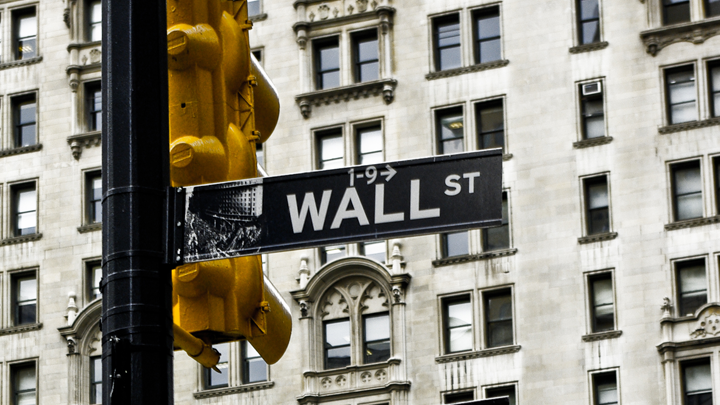
Market confidence could be starting to crack.
The Conference Board, a nonprofit think tank that conducts industry research, said on Tuesday that its widely followed consumer confidence index fell to 121.5 in June, its lowest level since September 2017.
This comes as Federal Reserve Chairman Jerome Powell stressed the central bank’s independence in the face of intense criticism from President Donald Trump around the Fed’s interest rate policy, injecting more uncertainty into a market landscape where many expect imminent rate cuts.
Now, with the U.S.-China trade dispute still unresolved, rising global tensions and the latest comments from the Fed, experts remain cautiously bullish but not without concerns.
Here’s what seven of them are watching now:
Ian Winer, an advisory board member at Drexel Hamilton, said the latest action in the market speaks to how central banks including the Fed will position themselves in the coming months:
“I think it’s just more of an example of this leveraged trade we’re seeing where people are buying stocks and buying bonds as well. It just tells me that you’re continuing to march towards negative rates, even here in the U.S., over the next 18 months, and it’s just further indication that the central banks are going to do whatever they have to do to try to keep the markets here.”
Chad Morganlander, senior portfolio manager at Washington Crossing Advisors, said investors are making a calculus here:
“The global economy’s going to continue to be very sluggish and slow. Inflation expectations are going to continue to be lowered. But overall, what market optimists are looking at is the earnings yield in relationship to this low interest rate environment and saying to themselves, ‘I can get a better return within the stock market.’ So, at this point within the cycle, although we are cautious when it comes to the yield curve, we’re still modestly overweight equity risk, in particular within the United States.”
Art Cashin, managing director of UBS Financial Services and UBS’ director of floor operations at the New York Stock Exchange, was wary of the recent rally:
“You’ve got the Iranian situation still, people crossing their fingers that neither side goes to military action and that we still wind up with sanctions and things of that type. But the market is, as I say, consolidating. We’re at new highs, but this is also right around where we paused back in early May and when things started to turn and head the other way.”
Cerity Partners’ Jim Lebenthal said tariff negotiations were making him “nervous”:
“I’m nervous here, even though I’m invested. So, look, it is an important moment. What are we looking for? What do you want? … The specific thing that I’m looking for is a pushback on the tariffs. Push ’em out two to three months, OK? There’s no way in heck that we’re getting a deal in the next week. Forget that. That’s not going to happen. You’re probably going to get some nice words, maybe a nice tweet, but you’re not going to get any substance other than what I hope … is push the tariffs off, because I’ve got to say those are making me nervous. If you start putting those tariffs on, all companies are going to have to worry about cost of goods sold. They don’t know where to expand their supply chain. It’s going to hit corporate confidence if we don’t get a pushback on those tariffs. And remember we used to talk about a second-half earnings recovery? Remember we all used to talk about that, like, two months ago? Nobody’s talking about that now. We’re talking about ratcheting down earnings expectations. We need to turn that around. It won’t happen if you don’t push back tariffs.”
UBS Private Wealth Managing Director Rob Sechan pointed to some concerning data points:
“This has been an untrusted rally. So, the backdrop is this, and I’ll give you some statistics: the Citi Panic/Euphoria Model is in panic territory, and you look at the skew of the AAII Bull/Bear, again, indicating cautiousness. Bank of America Merrill Lynch has this reading, this bearish sentiment reading, among [portfolio managers]. Listen to this: 42% of fund managers were overweight cash, the 98th percentile since 2001, and our own [strategist] Keith Parker says that equity positioning is 1.5 standard deviations below average. If you look at that, even in this rally, investors are offsides.”
Joe Terranova, senior managing director at Virtus Investment Partners, said trade was driving the conversation:
“I believe that the consumer remains strong. I believe that the consumer is beginning to trend slightly lower given the circumstances that we are seeing as it relates to trade, the concerns there. I think housing is a struggle. Do I think housing enters a recessionary environment for housing itself? I don’t see that. You heard comments from Lennar executives talking specifically about that, and I think that’s incredibly important because you have the production deficit as they have cited. So, yes, you are pulling back, the consumer statistics are pulling back, and they are pulling back because of the rhetoric and concerns surrounding trade. ”
Stephanie Link, Nuveen’s head of global equities research, said stocks could be approaching a tipping point:
“I think that you’ve definitely seen a softening, but I do think that there are winners and losers. Because we’ve talked about that. I mean, there are the Nikes of the world, but then there’s the Foot Lockers of the world who are struggling, or the Kohl’s or Macy’s or some of the department stores. So, I think, within the consumer, I think they’re still OK. I really do think it’s OK. I think they’re OK because jobs and wages are OK. They’re still very good. But I worry, and I have worried, that the market is such a big component for the consumer. And if that rolls over, then all of a sudden you see the confidence roll over. ”
